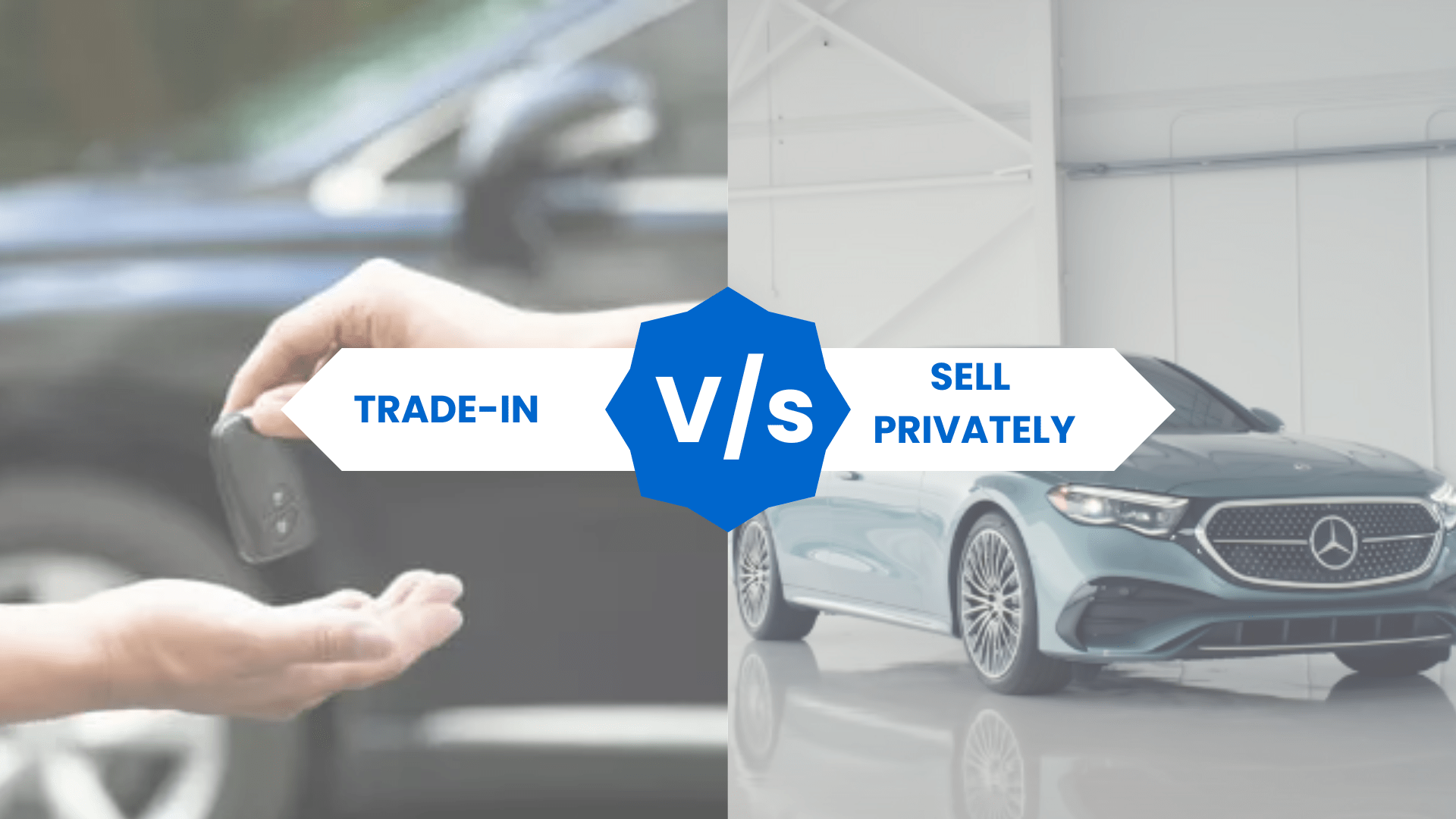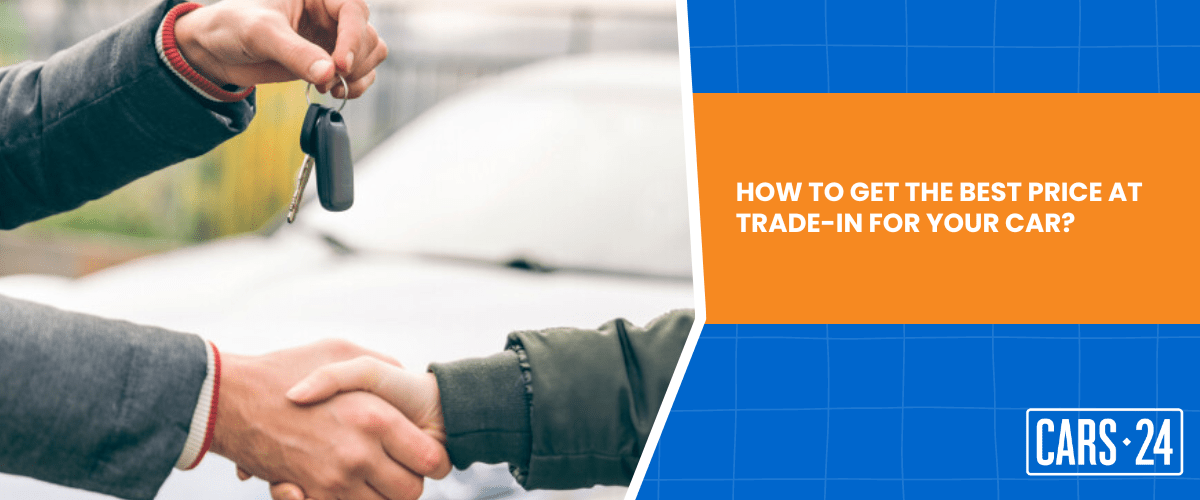In Australia, trading in cars has become a popular and convenient way for individuals to upgrade their vehicles while offsetting the cost of a new purchase. This process involves selling an old vehicle to a dealership or retailer and applying its value as credit towards a new or pre-owned car. As the automotive market evolves, understanding car trade-ins is crucial for both consumers and dealerships. This overview highlights the benefits of trade-ins, their impact on the industry, and the factors affecting trade-in values, offering insights into the changing dynamics of vehicle ownership.
Trading In vs Selling Privately

Trading in your car is a hassle-free way to get instant value for your next purchase, whereas selling it privately might fetch you a better price, but it demands more time and effort on your part.
Trading In
Now, lets explore the advantages of trading in your car.
Advantages of Trading In:
Now, lets explore the advantages of trading in your car.
Convenience
Trading in a car is more convenient than selling it privately. It involves a streamlined process where the dealer handles paperwork, transfer of ownership, and other administrative tasks.
Time-saving
Selling a car privately can take weeks or even months, while trading in can be done quickly, allowing for a seamless transition to a new vehicle.
Lower effort
Trade-ins save sellers from the hassle of advertising, meeting potential buyers, and negotiating prices, making it a hassle-free option.
Tax savings
In some Australian states, when you trade in a car for a new one, you may receive a reduction in the amount of stamp duty payable on the new vehicle.
Upgrade opportunities
Trading in facilitates upgrading to a newer model or a different type of vehicle, providing access to a wider range of options.
Disadvantages of Trading In:
Now, lets explore the disadvantages of trading in your car.
Lower value
Dealers often offer lower trade-in values than what the car might fetch in a private sale, as they aim to make a profit when reselling it.
Limited negotiation
The trade-in price is typically non-negotiable, limiting the seller’s ability to get the best possible value for their car.
Opportunity cost
Opting for a trade-in might mean missing out on potentially higher profits achievable through private sales.
Selling Privately
Private sales often yield a higher price but require more time, effort, and handling risks compared to a trade-in, which is quick and hassle-free but may offer less value.
Advantages of Selling Privately:
Now, lets explore the advantages of selling your car privately.
Higher sale price
Private sales generally yield higher prices for cars compared to trade-ins, as sellers can negotiate directly with buyers.
Control over sale
Sellers have full control over the selling price and negotiation terms, allowing for better financial outcomes.
Maximising advertising
Online platforms enable sellers to reach a broader audience, increasing the chances of finding the right buyer.
Transparency
Private sales provide an opportunity to showcase the car’s history and condition to potential buyers, building trust.
Disadvantages of Selling Privately:
Now, lets explore the advantages of selling your car privately.
Time-consuming
Selling a car privately can be time-consuming, requiring advertising efforts, arranging meetings, and handling paperwork.
Effort and costs
Sellers need to invest time and money in advertising, preparing the car for sale, and addressing potential buyer inquiries.
Risk
Dealing with strangers carries some risk, as there is no guarantee of a smooth and secure transaction.
What determines the price of a vehicle trade-in?
The price of a vehicle trade-in in Australia is influenced by various factors that dealers consider when evaluating the worth of the car. These determinants impact the trade-in value, and understanding them can help both buyers and sellers navigate the process effectively.
- Vehicle condition: The primary consideration is the condition of the car. Dealers assess factors like mileage, overall wear and tear, and the presence of any mechanical or cosmetic issues. Well-maintained vehicles typically receive higher trade-in values.
- Age and model: The age of the car and its specific model play a crucial role. Newer models and popular vehicles often command better trade-in prices due to higher demand in the pre-owned market.
- Market demand: The current market demand for the make and model affects the trade-in value. If there is high demand for a particular vehicle, its trade-in value is likely to be more competitive.
- Vehicle history: A clean vehicle history report with no accidents or major damages can positively impact the trade-in price. Conversely, a history of accidents or issues might lower the value.
- Supply and demand: The overall supply and demand dynamics of the used car market can influence trade-in values. A surplus of similar models may lead to lower trade-in offers.
How to get the best car trade-in deal?
By following the pointers below, you can position yourself to get the best possible trade-in deal in Australia. Research, preparation, and negotiation skills are essential for ensuring a satisfactory trade-in transaction that benefits both parties.
1. Research the car’s value: Begin by researching the fair market value of your car using online valuation tools, classified websites, and automotive guides. Knowing your car’s approximate worth will give you a baseline for negotiations.
2. Clean and maintain the car: Presenting a well-maintained and clean vehicle can positively impact its trade-in value. Consider getting a professional detailing service to enhance its appearance and address minor issues.
3. Gather maintenance records: Having a record of regular maintenance and repairs can demonstrate that the car has been well-cared for, potentially increasing its trade-in value.
4. Get multiple Trade-In quotes: Approach different dealerships to get trade-in quotes. Comparing offers will help you identify the best deal and leverage one dealer’s offer against another.
5. Time your Trade-In: Consider the best time to trade in your car. Weekdays, end of the month, and the end of the quarter are usually good times as dealerships may be more motivated to meet sales targets.
6. Be prepared to negotiate: Be confident and prepared to negotiate. Highlight positive aspects of your car, and if you receive lower offers, calmly explain why you believe it should be valued higher based on research and condition.
7. Separate the transactions: Avoid discussing the trade-in value until after negotiating the purchase price of the new car. Keep these transactions separate to ensure transparency and prevent confusion.
8. Understand the dealership’s perspective: Dealerships aim to make a profit on trade-ins when reselling them. Keep this in mind during negotiations and consider how your car fits into their pre-owned inventory.
9. Explore other incentives: Some dealerships offer additional incentives or promotions for trade-ins, such as bonus cash or discounts on the new vehicle. Inquire about these to maximise your savings.
10. Consider selling privately: If the trade-in offers don’t meet your expectations, you might consider selling the car privately for potentially higher returns. However, this requires more time and effort.
How to improve your car’s Trade-in value?
Maximising your car’s trade-in value is crucial when upgrading to a new vehicle. Follow these top tips to boost your cars valuation and ensure you get the best offer, whether you’re working with a dealer, an online service like CARS24, or other options.
1. Research your car’s value
Utilise reputable online tools like Redbook to determine your car’s market value. This information is essential for negotiating with dealerships or services, helping you secure the best trade-in offer.
2. Timing is everything
Market trends and seasonal fluctuations can impact your trade-in value. For example, convertibles may fetch higher prices in warmer months, while SUVs or 4WDs may be more valuable during winter. Stay informed through resources like the CARS24 blog for up-to-date market insights.
3. Presentation matters
Ensure your car is clean, well-maintained, and free of minor issues before trading it in. Investing in a professional detail can significantly enhance its appearance and increase the trade-in value you receive.
4. Gather documentation
Prepare all relevant paperwork, including the owner’s manual, service records, and receipts for repairs or upgrades. Comprehensive documentation demonstrates your car’s upkeep and can positively influence its trade-in value.
5. Know your car’s selling points
Highlight your cars unique features, such as low mileage, recent service, or aftermarket additions. Emphasising these selling points can make your vehicle more attractive and potentially increase its valuation.
6. Weigh the pros and cons of selling privately
Selling privately might yield higher returns, but it can be time-consuming and risky. Compare the benefits and drawbacks of private sales versus trading in with a dealer or service like CARS24 to determine the best option for you.
7. Time your new purchase
Align your trade-in with the purchase of a new car if possible. Dealers or services may offer a higher trade-in value to finalise the sale of a new vehicle. CARS24 can assist with both trade-ins and new purchases, making the process smoother.
8. Understand tax implications
Be aware of tax considerations related to your trade-in, such as GST and Luxury Car Tax (LCT). Understanding these implications helps you make informed decisions and prepare for any tax obligations. Consult the Australian Taxation Office (ATO) or a tax professional for specific guidance.
By following these tips, you’ll be well-prepared to maximise your car’s trade-in value. Whether you work with a dealership, an online service like CARS24, or explore other options, being informed and prepared will help you get the most out of your trade-in experience. Visit our home page to learn more about trading in your car with CARS24.
Conclusion
In conclusion, getting the best price for your cars trade-in requires careful preparation and strategic planning. Research your cars value, present it in optimal condition, and time your trade-in effectively to maximise its worth. Whether you choose to work with a dealership, an online service like ours, or explore private sales, each option has its advantages and challenges. By following the tips provided, youll be well-equipped to make an informed decision and secure the best possible trade-in value.
FAQs
- What are some effective negotiation strategies to get a good price on a car?
Effective negotiation strategies include researching the car’s value, being patient, setting a maximum price, and being willing to walk away if the deal doesn’t meet expectations.
2. How can I research the fair market value of the car model I’m interested in?
Research fair market value using online car valuation tools, comparing prices on classified websites, and consulting automotive guides and reviews.
3. Is it better to buy a car from a dealership or a private seller for a better price?
Buying from a private seller might offer a better price, but dealerships provide additional benefits like warranties, financing options, and trade-ins.
4. How can having pre-approved financing help in negotiating a better price?
Pre-approved financing gives you leverage during negotiations by knowing your budget and avoiding the pressure of dealer financing, potentially leading to a better deal.
5. Are there any hidden fees or add-ons to watch out for when negotiating the price?
Watch out for hidden fees like documentation fees, extended warranties, or add-ons. Clarify all costs upfront and negotiate for a transparent, all-inclusive price.
6. How can I find the best trade-in value for my car and ensure I get the most money possible?
To find the best trade-in value for your car, start by researching its market value using online valuation tools and comparing offers from different dealerships. Ensure your car is well-maintained and clean to maximise its value. For a seamless experience and top trade-in offers, CARS24 is an excellent choice.
7. How can I determine the trade-in value for my car?
You can use online tools like CARS24s trade-in value calculator to estimate your car’s trade-in value. Also, its good to get quotes from multiple dealerships for a more accurate range.
8. What factors influence the trade-in price for my car?
Factors that can influence the trade-in price of your car include your cars age, mileage, condition, and features. Market demand and dealership needs also play a role.

Comments
New Comment